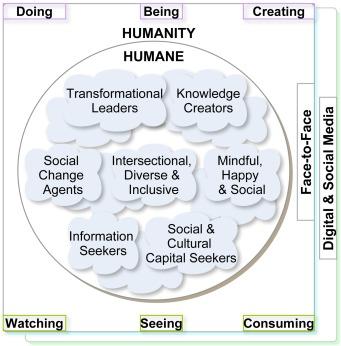Educational Research Analyst: Key Roles, skills, and Career Path overview
Introduction
As the education sector rapidly integrates technology, the need for professionals who can assess, analyze, and enhance learning systems has never been greater. One such vital role is the Educational Research analyst. Whether in universities, colleges, or schools, these specialists play a key part in driving evidence-based decisions, evaluating educational technologies, and shaping future-ready learning environments. If you’re considering a career in education technology or looking to take the next step in academic research, this thorough guide will help you understand what it takes to become an Educational Research Analyst and how to thrive in this exciting field.
What Does an Educational Research Analyst Do?
An Educational Research Analyst is responsible for applying research methodologies to educational settings, especially in evaluating teaching methods, learning technologies, and academic program effectiveness. Their work directly informs policy, curriculum advancement, and the adoption of educational technologies (EdTech).
- Designing and conducting quantitative and qualitative research studies
- Analyzing data to assess educational programs and technologies
- Developing surveys, assessments, and evaluation tools
- Preparing reports and visual presentations for stakeholders
- Collaborating with faculty, instructional designers, and EdTech vendors
- contributing to academic publications and grant writing
- Staying updated on educational best practices and emerging technologies
Key roles and Responsibilities in Education Technology
The role of an Educational Research Analyst is diverse and multi-faceted, especially within universities and other academic institutions integrating tech-driven learning solutions. Typical responsibilities include:
Evaluating Educational Technology
- Assessing new software, platforms, or digital tools for classroom adoption
- Testing the effectiveness of online learning management systems (LMS)
- Conducting pilot studies on innovative teaching aids and e-learning interventions
Policy and Accreditation Support
- providing evidence to support accreditation or reaccreditation processes
- Advising policymakers on tech integration based on research findings
- Formulating guidelines for ethical and practical EdTech usage
continuous Enhancement and Reporting
- Identifying areas for improvement in current teaching methods
- Compiling and presenting actionable insights for decision-makers
- Measuring student learning outcomes and educator feedback
Essential Skills for an Educational Research Analyst
Succeeding as an Educational Research Analyst in an EdTech context calls for a blend of analytical, technical, and interaction skills. Key competencies include:
- Research Methodology: proficient in both quantitative and qualitative research approaches.
- Statistical Analysis: Skilled in statistical software such as SPSS, R, Python, or SAS.
- Data Collection: Designing valid and reliable surveys, interviews, and observational measures.
- Report Writing: Translating complex data into accessible reports and presentations.
- Critical Thinking: Drawing meaningful conclusions from diverse data sources.
- EdTech Literacy: Familiarity with digital learning tools, platforms, and educational apps.
- Communication: Effectively presenting research findings to both academic and non-academic audiences.
- Collaboration: Working closely with educators, administrators, and technology vendors.
Educational Requirements and Certifications
Most employers look for candidates with a strong educational background and relevant experience. The standard path includes:
- Bachelor’s Degree: In education, psychology, statistics, data science, or a related field.
- Master’s Degree: preferred, frequently enough in educational research, education policy, learning analytics, or instructional design.
- Doctorate (Optional): For those aiming for research leadership or academic roles.
- Certifications: Credentials in data analysis, educational assessment, or project management can enhance job prospects.
Career Path and Advancement Opportunities
the career pathway for Educational Research analysts is dynamic, offering opportunities in both K-12 and higher education, as well as in EdTech companies and policy organizations. Typical progression includes:
- Starting as a research Associate or Data Analyst in educational settings
- Progressing to Research Analyst or Senior analyst roles within academic departments
- Moving into project management or lead researcher positions
- Transitioning to curriculum development, assessment specialist, or policy advisor roles
- Branching out into educational consulting or entrepreneur ventures in EdTech
Advancement often depends on continued professional development, publication of research findings, and demonstrating leadership in implementing educational innovations.
Benefits of Working as an Educational Research Analyst
A career as an Educational Research Analyst offers numerous rewards:
- impactful Work: Shape the future of teaching and learning through research-driven changes.
- Continuous Learning: Constant exposure to new technologies and pedagogical innovations.
- Diverse Opportunities: Work in universities, K-12 schools, policy centers, EdTech firms, or as a private consultant.
- Professional Growth: Engaging in cross-functional projects and collaborations with experts worldwide.
- Competitive Salary: Educational Research Analysts can command attractive compensation, especially in higher education and EdTech sectors.
Practical Tips for Aspiring Educational research Analysts
- Build a Strong Foundation: Take coursework in research methods, statistics, and educational theory.
- Gain Relevant Experience: Participate in university research projects, internships, or volunteer with academic departments.
- Stay Current: Read recent publications in educational research and EdTech advancements.
- Develop Technical Skills: Master statistical software and data visualization tools to analyze and communicate findings effectively.
- Network: Attend academic conferences, EdTech expos, or join online professional communities to expand your knowlege and connections.
- Seek Mentorship: Find experienced researchers or instructors to guide your career development.
- Showcase Your Work: Build a portfolio highlighting research projects, conference presentations, or published articles.
Conclusion
Educational Research Analysts are driving change and innovation at the intersection of education and technology. This career path is perfect for individuals passionate about research, data analysis, and improving learning outcomes. Whether in a university, college, or school setting, these professionals ensure that educational decisions are grounded in solid evidence and best practices. By acquiring the right mix of skills, qualifications, and practical experience, you can establish a rewarding career that shapes the future of education. If you are well-organized, analytical, and eager to make a lasting impact, the role of an educational Research Analyst in EdTech may be your ideal fit.

